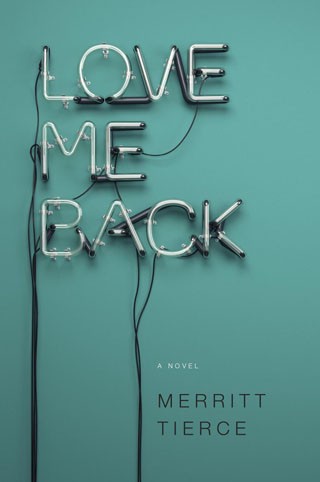“Has Your Husband Read It?”

Over the weekend I read Love Me Back by Merritt Tierce, mostly because several of my friends had e-mailed me this review by Pooja Bhatia with the following line highlighted:
People compare Tierce to Joan Didion, maybe the doyenne of literary realism, and Mary Gaitskill, whose intense short stories have explored sex and debasement.
I mean, sold.
I bought the book and read it in one sitting and I would recommend that you do the same; I loved it. Love Me Back really is quite similar to Play It As It Lays, at least in terms of the emotional devastation incurred on the reader, and I enjoy that kind of reading. “Sad Girls ‘R Us” is a crass but accurate title for my personal library.
Last week Tierce published a short blog post on Powell’s website, and I came across it right after I finished reading the book, and it is wonderful. Tierce talks about the question asked of every woman who writes about women — “Is it autobiographical?” — but also, the even more bizarre cousin of that question, the one that lays bare any bias or prejudice the asker has about women who write about women: “Has your husband read it?”
I suppose those who have posed this question to me could be making the most innocent of inquiries; after all, it’s a normal enough thing to wonder about someone who makes any kind of art and has a spouse or partner. But the question still grates, because maybe what they mean is something more like, “Is your husband really OK with the fact that you wrote a book about someone who resembles you in several significant ways, and that person has sex with a lot of different people? Does your husband know that you may have had sex with a lot of different people? How does he feel about that, if so? And if he’s OK with it, do you know how lucky you are?”
Even if the asker doesn’t realize those are the questions buried in their question, those are the questions I hear. And I can’t help but think they wouldn’t ask a male writer that question — had he written such a promiscuous disaster of a semi-autobiographical male character, he would more likely be asked, “What are you working on now?” or “What’s your writing routine?” or “Who has influenced you as a writer?” Because people are less likely to care whether or not a man has a partner in the first place, and certainly less likely to ask questions that subsume the man’s creation under the realm of his partner’s consumption and/or approval.
It’s as if I’m being asked, “By whose authority does this telling take place?” and all I want to say is, “Mine, and mine alone.”
I mean, sold.